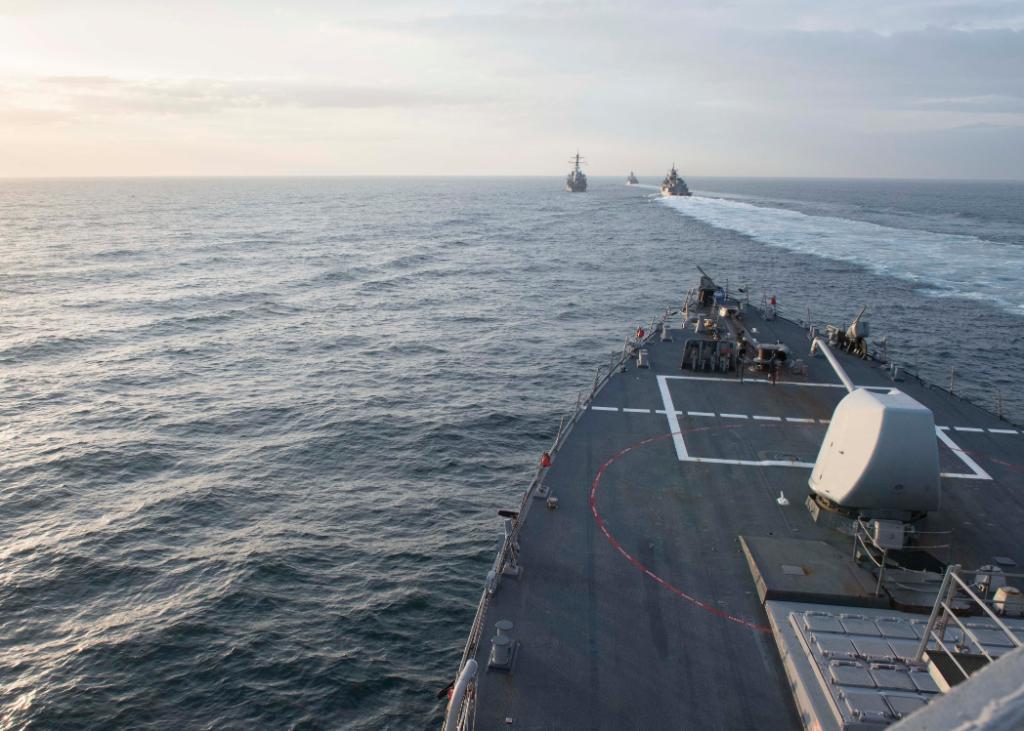All the tensions between the US, Turkey and Russia in the Black Sea

The in-depth study by Giuseppe Gagliano
On February 10, the Russian Defense Ministry announced that two Tu-22M3 long-range bombers made a routine flight over the Black Sea, a reconnaissance flight that must be read as a strategically proportional response to that implemented on February 9 by of the Sixth Fleet of the US Navy together with Turkey in the same waters confirming – if there was a need – that Turkey playsa very important role for the USin terms of anti – Russian containment .
Well, that the Black Sea plays a role of great importance at the geo-economic and geopolitical level is quite obvious.
In fact, from the point of view of energy security, the Black Sea region is a transit area of strategic importance both for the importing countries of Central and Eastern Europe and for producing countries such as Russia or Azerbaijan, or more generally the countries of the Caspian region.
The Straits of the Bosphorus and the Dardanelles are among the most important sea passages in the world, with three million barrels of oil from Russia, Ukraine and the Caspian basin passing through them daily. Free movement in the Black Sea strait is guaranteed by the Montreux Convention signed in 1936 by the countries bordering the Black Sea (Turkey, USSR, Romania, Bulgaria) and by European countries (France, United Kingdom, Greece, United Kingdom of Yugoslavia).
Since the early 2000s, the Russia-Ukraine crises have redesigned the map of the hydrocarbon transport networks. The volume of gas in transit through Ukraine has gradually decreased , its share has increased from 80% to around 35% of Russian gas deliveries to Europe, and the epicenter of gas transit has shifted from Ukraine to Turkey, South Eastern Europe and the Baltic region. This is partly due to Russia's willingness to bypass Ukrainian territory, to the north with the Nord Stream 1 and 2 pipelines, and to the south with the TurkStream .
The geographical position of Turkey, at the crossroads of regions rich in hydrocarbons (Russia, Central Asia, Middle East, Eastern Mediterranean) and European consumer countries, makes it a hub for importing and producing countries. The countries of Eastern and South Eastern Europe are at the center of the struggles for influence and competition between European and Russian projects.
Finally, 70% of the potential natural gas fields of the Black Sea would be concentrated on two sites: “Neptune Deep” and “Trident”, located in the Exclusive Economic Zone (EEZ) around Crimea.
From a geopolitical point of view, in recent years the region has witnessed a resurgence of tensions and new rivalries that have led to a deterioration of regional stability.
The illegal annexation of Crimea in 2014 and the open conflict in the Donbass allowed Russia to strengthen its military grip on this space where it felt its influence was waning since the end of the USSR. This perception was reinforced by the enlargement of NATO to include Romania and Bulgaria in 2004, then by the recognition in 2008 of the Euro-Atlantic aspirations of Georgia and Ukraine at the Bucharest summit.
Tensions in the aftermath of the November 2018 incident between the Russian and Ukrainian navies in the Azov Sea , connected to the Black Sea by the Kerch Strait, underline the importance of Black Sea space for Russia.
Indeed, the Black Sea is a privileged area in which Russia is able to exercise and project its projection of maritime power, especially since its intervention in Syria in September 2015. In the context of the Black Sea, the military infrastructure of Sevastopol is central. .
Therefore, there are two political positions facing each other: on the one hand that of the USA and NATO which do not accept – indeed they have never accepted – the projection of Russian maritime power and on the other hand, Russia reads Western military activities in the Sea. Black as an attempt to threaten Russian hegemony at the maritime level.
Specifically, the Russian Defense Ministry interprets the presence of US planes and ships regularly approaching its borders by occasionally simulating missile attacks as a permanent and unacceptable threat to Russian sovereignty.
This is a machine translation from Italian language of a post published on Start Magazine at the URL https://www.startmag.it/mondo/tutte-le-tensioni-tra-usa-turchia-e-russia-nel-mar-nero/ on Sat, 13 Feb 2021 09:32:23 +0000.
